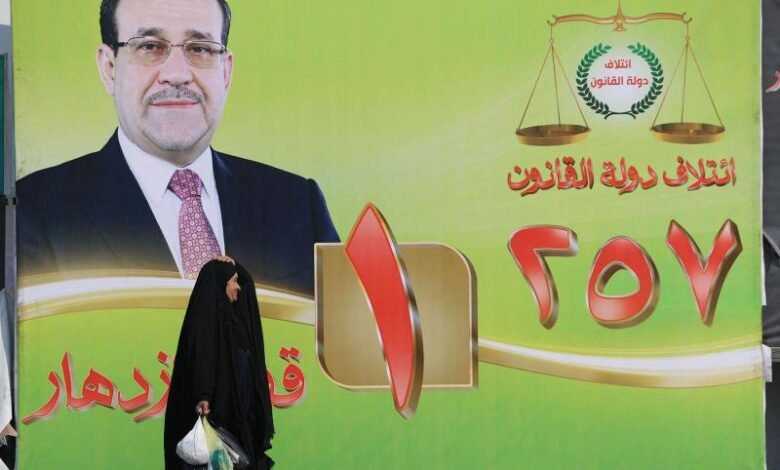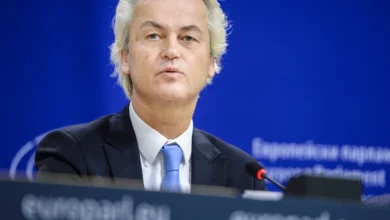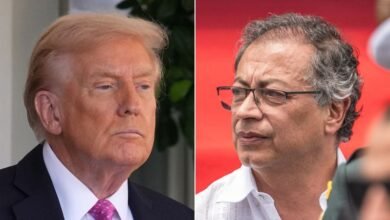Can Nouri al-Maliki overcome the void of sectarian politics? | Karam Nama

When sectarian and political emptiness expresses itself with arrogance, you are inevitably speaking of today’s counterfeit Iraq.
Nouri al-Maliki feels no shame in wearing the badge of disgrace as a sectarian achievement. In his old-new disgraceful stance, promoting himself for the upcoming parliamentary elections, he defines Iraqi patriotism as support for the political process established since the occupation of Iraq, a statement that fails to shield him from the consequences of his own national foolishness.
Maliki claims that supporters of the current system are “patriotic,” and insists that winning public support must be based on the principles of law and the political process. Yet he cannot defend the essence of that law, whether it is genuine or as fake as everything else in Iraq today.
His rhetoric echoes his infamous historical statement dividing Iraqis into the army of Hussein and the army of Yazid. But it also betrays a deeper truth: he knows, deep down, that no Iraqi truly trusts him. He lives a growing psychological crisis rooted in what might be called a “lynching sequence” that his miserable sectarian fate seems to await.
Maliki harbours an instinctive suspicion toward Sunnis, a sentiment he often repeated in meetings with US embassy officials, and once expressed to former President Jalal Talabani with disdain toward the honourable people of Mosul, simply because they are Sunni.
Look again at the image of him holding a rifle, like a defeated soldier, after followers of the Sadrist movement besieged the Green Zone. It reveals his emotions and early defeat, and what he anticipates next.
Since the fall of Mosul to ISIS, Maliki has been living his worst personal crisis, expressing it through political babble, like someone tying a bell around his own neck to guide the avengers to him. As former US ambassador Ryan Crocker once put it, Maliki sees a Ba’athist lurking behind every bush. The United States watches this “high-octane drama” and “naïve comedy” unfold in the Green Zone.
Day by day, we discover that Maliki truly believes soldiers from Yazid’s army are emerging from the pages of history to ambush him behind every shrub.
President Bush once advised Maliki not to ask his aides to translate American newspaper articles for him. They would not help his shallow thinking.
What kind of politician, in his right mind, would so brazenly express his own depravity by labelling Iraqis who reject corruption and demand the return of their hijacked state as “unpatriotic”?
Returning to the ethical and personal dilemma this sectarian politician lives in, the answer becomes clear: his entire history is a disgrace, degrading religion in the name of defending a sect.
Once, a Roman told a shoemaker who let arrogance get the better of him: “Let not the shoemaker go beyond his shoe.”
How many times must we repeat this phrase to the vulgar and arrogant political specimens of the Green Zone, from Nouri al-Maliki and Mohammed Shiaa al-Sudani to Ammar al-Hakim, Qais al-Khazali, Mohammed al-Halbousi, Khamis al-Khanjar, Mahmoud al-Mashhadani and Hadi al-Amiri?
Maliki will be remembered as one of the most destructive politicians in Iraq’s history, timing the release of his ruinous recipes whenever he feels marginalised. He longs to be central, granting himself the right, as a graveyard-minded thinker, to be present in a thousand-year-old history, speaking like any sectarian mind as if he were a witness to that past, shaping Iraqi patriotism accordingly.
Worse than his recent remarks about patriotism being tied to support for the political process is the fact that some express surprise at his words, rather than recognising them as pure contempt.
But this is the prevailing model of Iraqi politicians. As my friend, writer Ali al-Sarraf, says: they and deception are one and the same. Maliki is not unique, but he is the prototype. The “father” of sectarianism, the architect of quota-based governance, and the leader of a state whose sole identity is corruption.
In the “state” nurtured by Maliki, the national question is excluded. Some even mock the idea of patriotism, seeing it as something to be eradicated. That is why Maliki and his ilk felt threatened when the youth of Tishreen raised the slogan:
“We want a homeland.”
Maliki’s problem is that he does not see himself as sectarian waste. And that is an ethical crisis before it is a political one. He will only see his true nature when Iraqis begin to clean up the wreckage of their stolen homeland.
Credit: Source link






